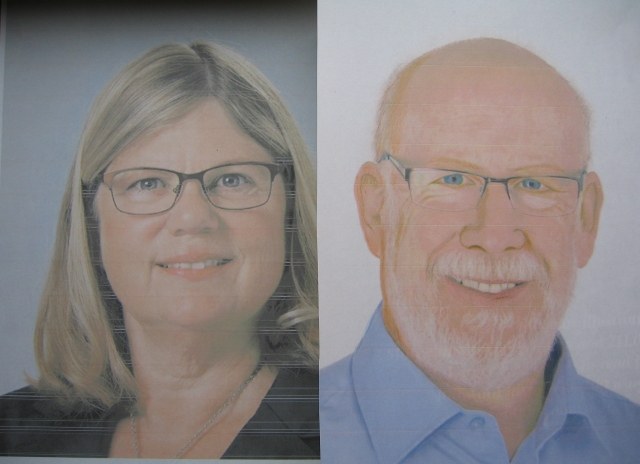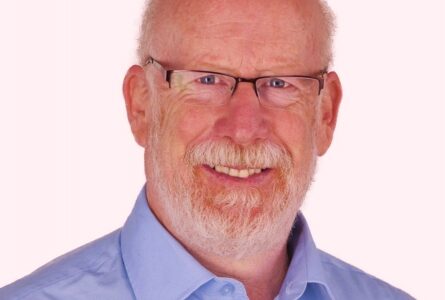NDP and Liberal Candidates Answer the Final Set of Questions
As you read the candidates’ answers, ask yourself: How well does this answer respond to the question that was asked? Does the answer state a specific action, or just make vague generalizations? Is the party going to do something or just engage in studies?
Section III: Governance
Question 1. There has been criticism in the press about the amount of power wielded by the Prime Minister’s Office (PMO). Please tell our readers whether or not you approve of the current level of power in the PMO and whether you think it is consistent with a democracy. Would you work to limit the PMO’s power, or to expand it?
NDP Candidate Richard Cannings answers: Tom Mulcair has pledged to run an open government with greater transparency at all levels. We will fix the dysfunction of Parliament by respecting the traditions of committee work and we will strengthen the independence of watchdog agencies such as the Parliamentary Budget Officer and Auditor General.
Liberal Candidate Connie Denesiuk answers: For Parliament to work best, its members must be free to do what they have been elected to do: represent their communities in Parliament and hold the government to account. I am dismayed when I hear from people who have been turned off of politics because they watch the House of Commons’ Question Period, and the behavior is so poor that good people turn away. This is more a symptom of what is wrong than the cause of the problem itself: the steady weakening of the work of Parliamentarians, as power is increasingly concentrated within the Prime Minister’s Office. A Liberal government will restore Parliament as a place where accountable people, with real mandates, do serious work on behalf of Canadians.
Question 2. Are you in favour of an electoral system that would result in a parliament consisting of a mix of members of parliament that more accurately reflected the popular vote, or do you favour the current system commonly called “first-past-the-post”? Please explain your reasons.
NDP Candidate Richard Cannings answers: Yes, the NDP favours a proportional representation system that would make everyone’s vote count and have proposed introducing this during their first term in office. In 2013 the Conservatives and Liberals voted against an NDP motion on proportional representation. If 40% of people vote for a certain party, that party would have 40% of the seats in parliament. This would lessen cynicism about elections and foster cooperation and collaboration among parties in parliament.
Liberal Candidate Connie Denesiuk answers: The Liberal Party is committed to ensuring that 2015 will be the last federal election conducted under the first-past-the-post voting system. As part of a national engagement process, we will ensure that electoral reform measures – such as ranked ballots, proportional representation, mandatory voting, and online voting – are fully and fairly studied and considered. This will be carried out by a special all-party parliamentary committee, which will bring recommendations to Parliament on the way forward, to allow for action before the succeeding federal election. Within 18 months of forming government, we will bring forward legislation to enact electoral reform.
Question 3. Infrastructure: I have heard that municipalities are responsible for about 60% of infrastructure, yet receive only about 8 cents of every tax dollar. It’s fairly commonly known that Canada has a large “infrastructure deficit” — that is, we have much more infrastructure that is past its expected lifetime and in need of replacement, than we have funding to replace. Given the unprecedented wealth of this society, why can we not replace what we had the money to build many years ago? Where is the money? And how would you propose to find that money, to get Canada’s infrastructure healthy again?
NDP Candidate Richard Cannings answers: The Liberals and Conservatives downloaded infrastructure responsibility over several decades. Past infrastructure plans have complicated public-private partnership requirements that can be hard for small communities to fund. The NDP want to launch its Better Transit Plan to reduce commute times across Canada and support municipal transit needs by investing $1.3 billion per year over twenty years. They also plan to increase direct transfers to municipalities to build and repair roads and bridges with an additional $1.5 billion annually within four years of being elected.
The NDP will fund needed infrastructure spending with increased gas tax transfers, starting at one additional cent of the existing gas tax and moving up each year . The four year plan has been published and shows the amount of gas tax transfers over four years.
The biggest improvement aside from more money is to simplify the application processes and make funding stable rather than asking municipalities to compete for funding.
The NDP’s infrastructure platform announcement has received solid support from Canada’s municipal leaders including the Federation of Canadian Municipalities President, Raymond Louie who stated, “It points the way forward to a new era in which cities and communities can plan ahead and deliver on local priorities.”
Liberal Candidate Connie Denesiuk answers: In Rossland alone, there is a fifteen million dollar infrastructure deficit. Investing in underground services may not generate the best political photo-ops, but investment in aging infrastructure is essential. Current grant application processes have not been developed with accessibility in mind.
A Liberal government will provide dedicated funding to invest in a broad range of projects, including but not limited to: local water and wastewater facilities, climate resilient infrastructure, clean energy, and clean-up of contaminated sites to facilitate new construction. We will also support efforts to prepare for changing weather patterns, such as: protections against wildfires, improved storm water systems to diminish the impact of urban floods, additional dams and dikes to prevent overland or coastal flooding, the reinforcement of energy systems in the face of possible ice storms, and the reinforcement of infrastructure to confront melting permafrost in our North. These and other efforts will be undertaken in partnership with other orders of government and based on the best available science. We will boost investment in green infrastructure by nearly $6 billion over the next four years. Rossland has some unique green infrastructure planned, and I will work hard to advocate for these projects.
Question 4. In the United States, their constitutional tag-line is “Life, Liberty and the pursuit of Happiness.” In Canada, our constitutional tag-line is “Peace, Order and Good Government.” The American focus appears to (to me) be more on the rights and freedoms of the individual, while the Canadian focus seems to be more on maintaining a healthy and stable society so that individuals can flourish within it. Which do you think should be paramount — the rights of the individual, or the “common good” — the health of our society?
NDP Candidate Richard Cannings answers: The two go hand in hand. Government can create policies and develop programs that are for the common good, don’t infringe needlessly on individual rights, and strengthen the rights of marginalized groups. But trust and confidence in our government institutions and laws needs to be restored. Bill C-51 needlessly violates individual privacy rights and the right to protest. The NDP voted against the bill and have promised to repeal it.
The NDP have promised to implement UN Declarations to protect the rights of Indigenous peoples as well as international human rights standards for groups such as the LGBTQ community. The NDP’s support for improved educational and training opportunities, as well as improving access to health care (home care, mental health services, palliative care) would go a long way to improve the lives of individuals.
Liberal Candidate Connie Denesiuk answers: The answer to this question lies not so much in tag-lines but in the common practise or norms of the society as a whole. For instance how does the right to bear arms under the American constitution square with the tag-line of “Life, Liberty and the Pursuit of Happiness?” We Canadians are aware that the American society is one of the more violent cultures in the world.
But, certainly the comparison of tag-lines doesn’t in any way lessen individual rights in Canada which are guaranteed under our Charter of Rights and Freedoms and protected by the constitution. Also the health of our society does not easily lend itself to comparison by comparing tag-lines. Many Americans facing ruinous financial hardship because of a health catastrophe would very much like to be living under our health care system.
Our plan for a fair and open government not only builds on those measures, but it also moves far beyond them. It is a sweeping agenda for change. It is an agenda that will allow us to modernize how the Canadian government works, so that it better reflects the values and expectations of Canadians. At its heart is a simple idea: transparent government is good government. If we want Canadians to trust their government, we need a government that trusts Canadians. For me, open government is effective government.
I believe that government exists to make peoples’ lives better. . That is why it is especially important that government work well, and be seen to work well.
Question 5. Should paid lobbyists be able to influence government policy and legislation? If so, why, and to what extent? If not, why not?
NDP Candidate Richard Cannings answers: There will always be paid lobbyists so we must ensure that they are well regulated and guidelines are reviewed and tightened. The activities of Canadian Security Intelligence Services Review Committee Chair Chuck Strahl have raised concerns following media reports he is a registered lobbyist for Enbridge Northern Gateway Pipeline. New Democrat House Leader Nathan Cullen stated, “It should be common sense that someone on the federal payroll shouldn’t lobby for a pipeline seeking federal government approval.” As a former Minister he is prohibited from federal lobbying, but vague guidelines could mean he can use loopholes to skirt the rules and lobby the province.
Liberal Candidate Connie Denesiuk answers: I feel strongly, that those who influence government policy must be the citizens themselves. Citizens must expect their member of parliament to bring their voice to Ottawa. Lobbyists cannot interfere with this sacred duty and trust.
Most lobbyists don’t tackle broad policy issues. Rather they work on a “project basis”; they are concerned with helping their clients obtain such things as government supply contracts, industrial incentive grants, licences, access to natural resources or minor regulatory changes. Fairness and transparency are essential through any and all of government processes.
Editor’s Note: Do readers believe that the fossil fuel industry did not lobby our federal government for the sweeping changes that were made to our laws, apparantly for the purpose of facilitating mineral exploration, extraction, and transport? Do those legislative changes demonstrate a shift in policy, or not?

























